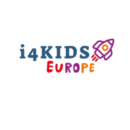"I am a practising neonatologist. Everything builds on this base and my dedication to improving patients’ lives", Janene H. Fuerch
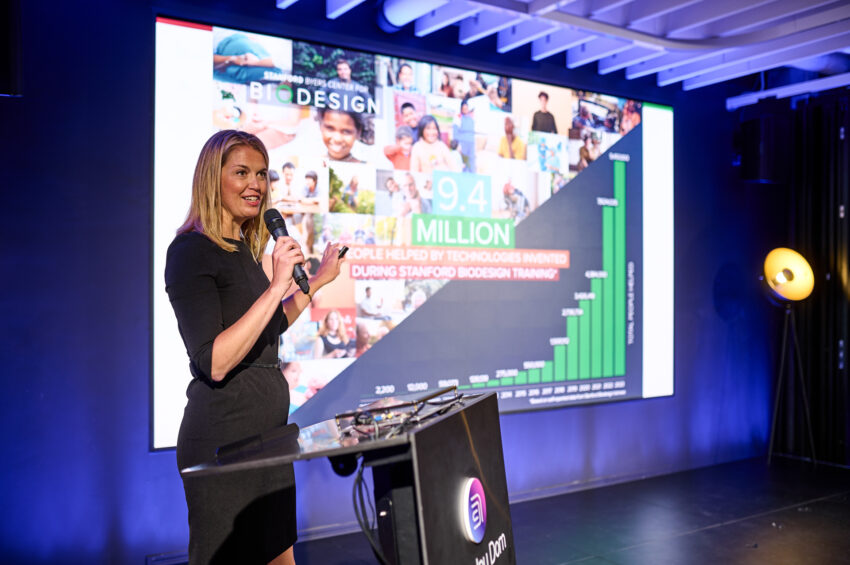
Given your involvement in various activities and roles, where do you usually start when introducing yourself?
Despite all the innovation work that I do, the most important role to me is being a physician and advocate for pediatric patients and their families – so I first introduce myself as a practising neonatologist. Everything builds on this base and my dedication to improving patients’ lives.
Can you share with us your journey from an undergraduate in Neuroscience to becoming a Clinical Associate Professor of Neonatology and a medical innovator?
I have always been fascinated by science, problem solving and helping others, so I have continued to follow areas that I am passionate about from Neuroscience and community health, clinical research, global health research and human factors in simulation. At the end of my neonatal-perinatal medicine fellowship, I recognized that I was building digital medical devices without knowing how to reach patients or get products out of an academic environment. Once I had a working prototype and had clinical evidence supporting it, I asked around – everyone said, “Just publish the paper and hope that someone builds it.” That was the most deeply unsatisfying response. I thought – who is going to build a device for neonatal patients? So, then why not me? I could do this! I was then accepted to the Stanford Byers Center for Biodesign Innovation Fellowship – immersive 10-month program, started EMME ™ (a women’s health company focused on improving adherence to birth control), caught the innovation bug and I haven’t stopped since.
As the Assistant Director of the Stanford Biodesign Innovation Fellowship, what are some key aspects of your role, and how do you support medical device entrepreneurs?
I seriously have the best job – working with talented, thoughtful and hard-working professionals dedicated to learning the Stanford Biodesign Innovation process. Many of them start companies, but in addition to that I have the privilege of mentoring, coaching, advising them throughout the years, watching their innovations evolve. I have been in their shoes and remember how uncertain everything felt, but having been successful using the process is hopefully motivating and inspirational for the fellows. We stay connected for years beyond the fellowship and I continue to help many of them launch successful companies and careers.
As a member of the advisory board of Diversity by Doing, why do you believe diversity and inclusion are vital in medical device innovation?
People innovate for those that they know. For much of history, it has been men innovating for largely Caucasian men – leaving women, children, racial and socioeconomic minorities out of the conversation, which has served to only exacerbate disparities and health inequities. I don’t agree with leaving women and children out of the conversation – my patients deserve better and I am here to fight for them.
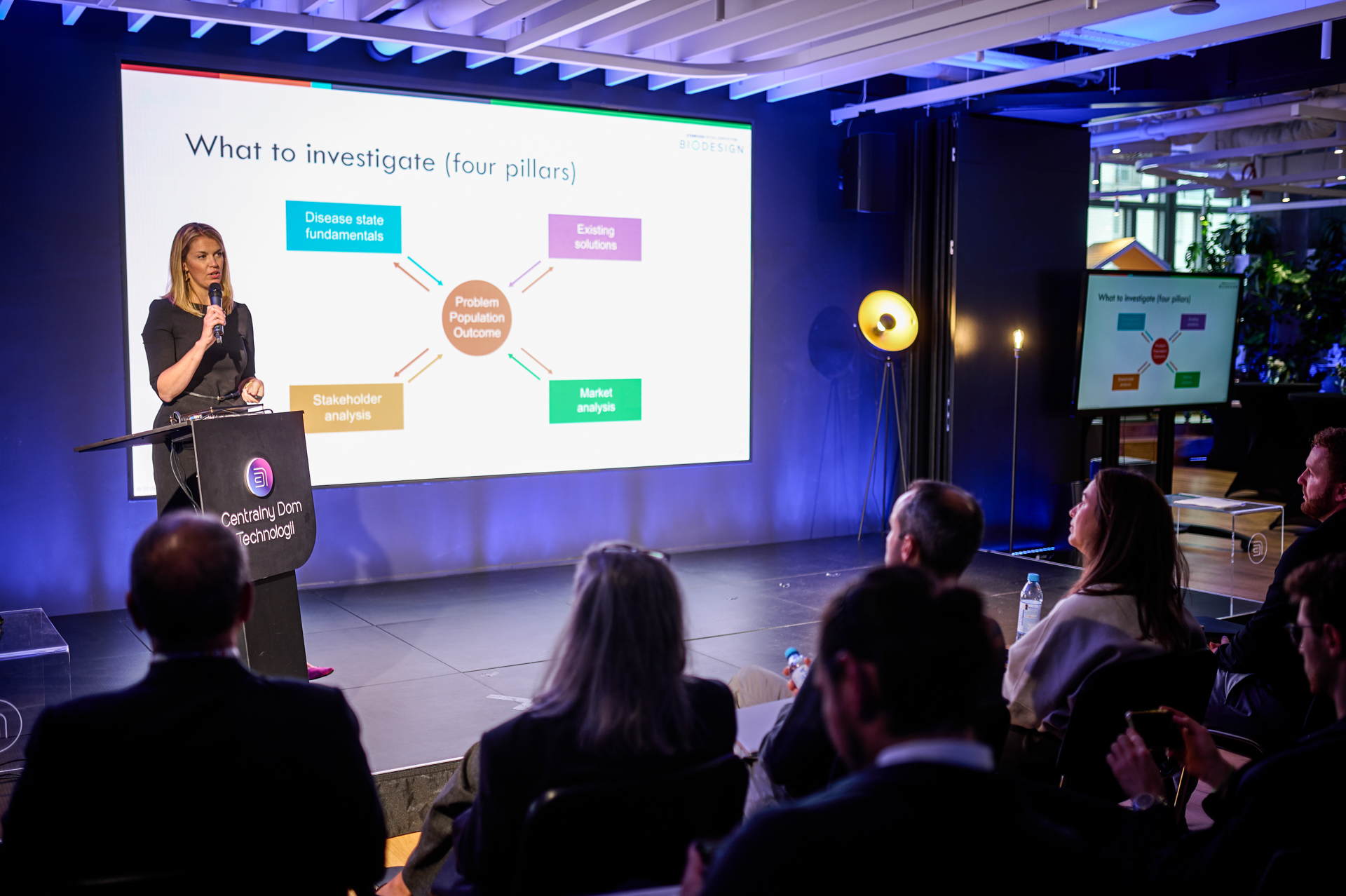
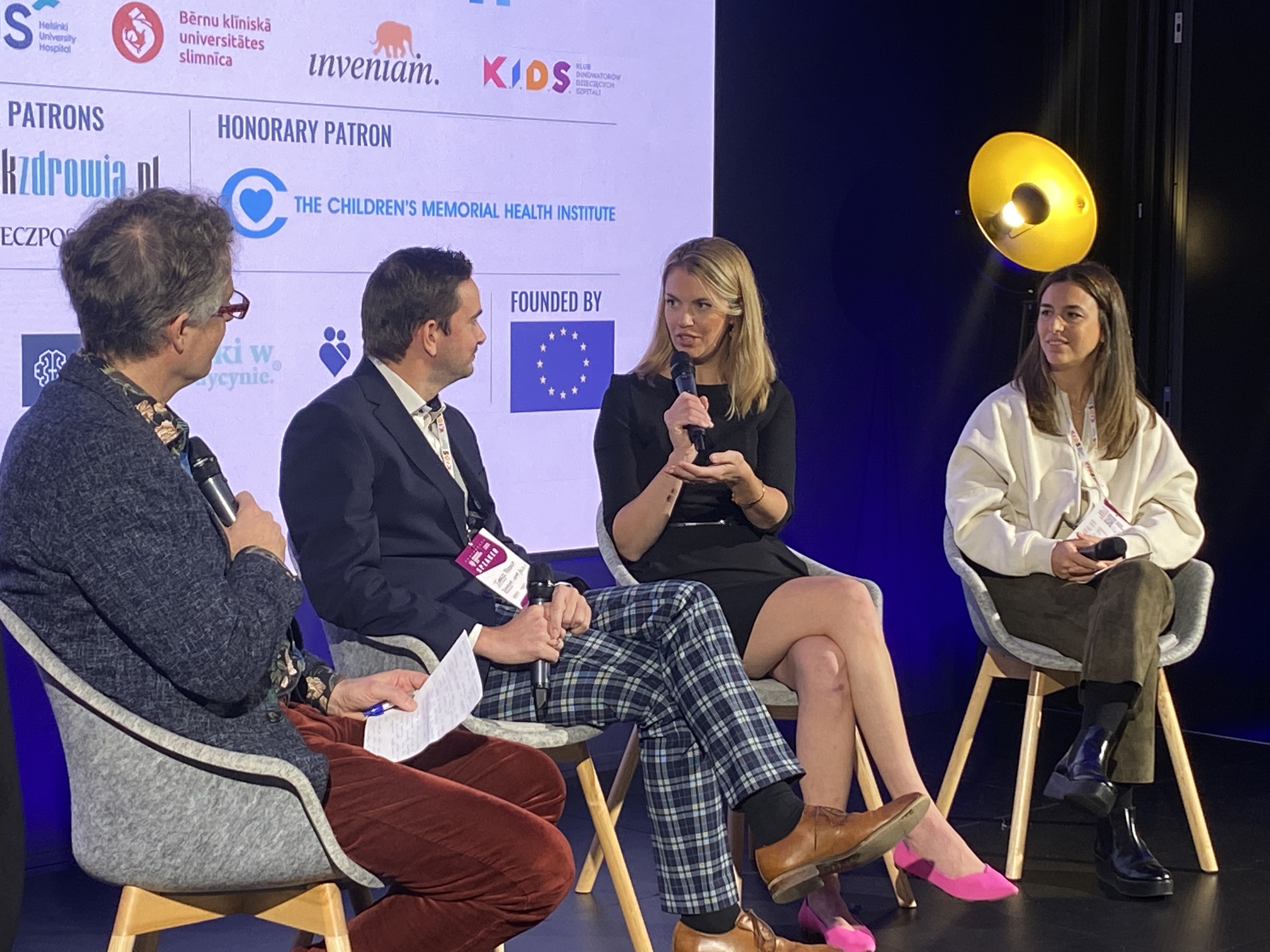
Janene H. Fuerch during her participation at the Pediatric Innovation Day 2023 held in Warsaw.
Can you share a success story from your entrepreneurial journey? What was the role of innovation and entrepreneurship in addressing healthcare challenges?
I have been really fortunate to work with some amazing CEOs and to have successfully had two acquisitions in the last two years (EMME in 2022 and Novonate in 2023). Both were very different experiences and each a rollercoaster ride.
EMME is a hardware case paired with a software app to improve birth control pill adherence – it is an extremely simple solution and amazing that no one had thought of it before. We believed in the clinical need and knew that women around the world needed our solution, as reproductive freedoms were becoming more restrictive in the US.
Novonate’s flagship product is an umbilical catheter securement device – their invention was completely frame shifting for me. The disparity between adult and neonatal line securement is deplorable. In neonatology the standard of care was non-standardized, non-sterile tape crafted into an art project. Before we simply accepted that these central lines had the highest rates of infection, but didn’t question that leaving them exposed near the diaper was a problem – mostly because there wasn’t an alternative. Getting a neonatal medical device company funded and acquired was a long and challenging effort, but worth it when I see the device on my patients every day.
What, in your opinion, is the role of doctors in a healthcare system that creates medical innovations? What advice would you offer to those who want to be involved in the creation and implementation of innovations in healthcare?
Doctors and other health care professionals are critical components to innovation. We understand the work arounds, pathophysiology and have heard the patient’s stories. No medical technology should be created or moved beyond a needs finding stage until the need is repeatedly validated with health care professionals. And physicians can’t do it on their own either – innovation and entrepreneurship is a team sport.
What advice would you have to offer for aspiring medical innovators looking to make an impact in the field of pediatric innovation?
Always follow your passion. In doing that I have never regretted the unconventional paths I have taken, nor have I ever wondered if my work was making an impact – it does every day. And don’t innovate alone, get out there – hear the patient, family, nursing, billing department etc opinion – observe what you are trying to solve and be honest with yourself if you are tackling the most compelling unmet clinical need. Enjoy!
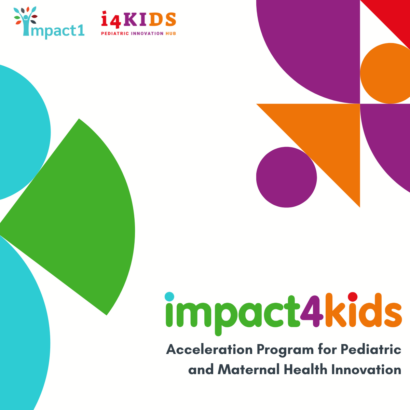
Uncategorized
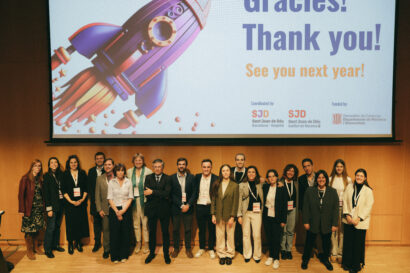
Uncategorized

Uncategorized
